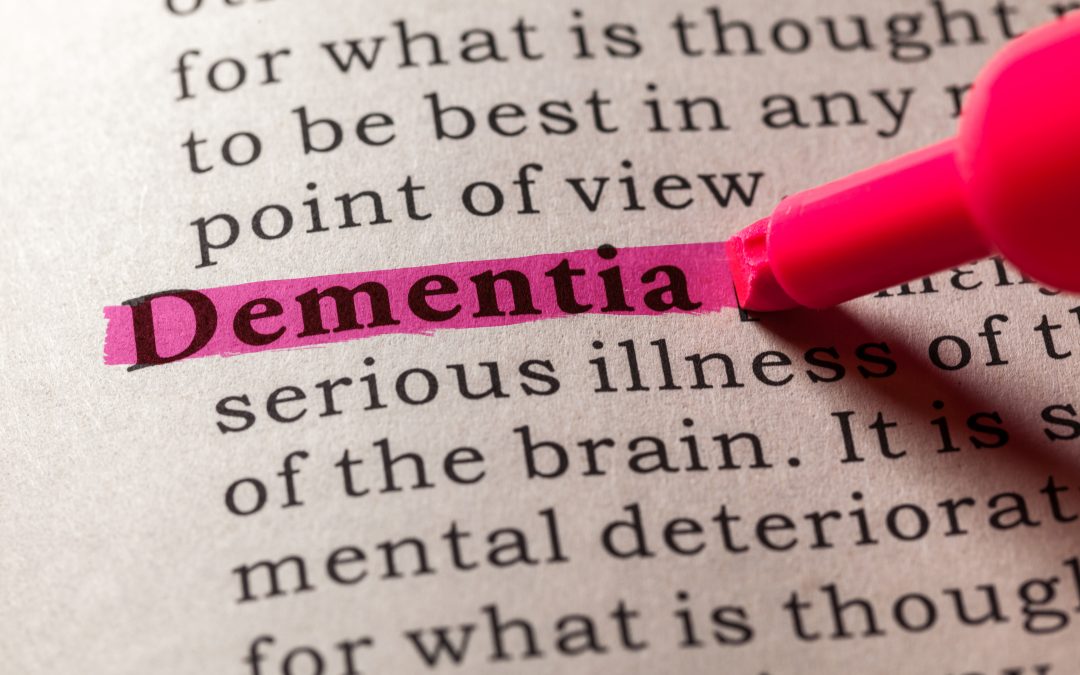WHAT IS DEMENTIA?
Dementia is not a specific disease, it is a syndrome or a group of related symptoms. It’s an overall term that is associated with a decline in memory or other thinking skills severe enough to reduce a person’s ability to perform everyday tasks and activities. The symptoms can include problems with:
- memory loss
- thinking speed
- mental sharpness and quickness
- language
- understanding
- judgement
- mood
- movement
- difficulties carrying out daily activities
There are many different causes of dementia. Alzheimer’s disease accounts for 60 to 80 percent of cases and, together with vascular dementia, makes up the vast majority of cases.
The symptoms of dementia are often mild to begin with, not severe enough to really be labelled as dementia but more of a mild cognitive impairment. However, they may progress gradually.
Symptoms may not be noticeable to the patient to begin with, and even friends and family may not notice or take them seriously for some time. For some the symptoms may not change or worsen, whereas others will go on to develop dementia.
People with dementia can have visual difficulties caused by the brain but still have healthy eyes. That is, problems perceiving what they see rather than how sharply they see it. However, it is important to have regular eye health checks to rule out other age-related eye conditions such as Macular Degeneration or Cataracts, since the way that they describe the visual symptoms could be similar.
SIGHT LOSS OR DEMENTIA?
Some unusual behaviour may simply be a reaction to sight loss or attempts to make the most of useful vision. You may notice the person you care for:
- becoming withdrawn or uncommunicative
- being clumsy or having balance problems
- reporting visual hallucinations
- holding things up close
- confused and disorientated
- startled by noises or people approaching
Some of these signs may be due to a person’s dementia, but it is important to have their sight tested as sight loss could be contributing to increased confusion.
WHAT SHOULD I DO?
Many people think the person they care for can see perfectly well. This is often not the case, and can simply be that they cannot tell you about changes to their sight. It is important that someone with dementia has their sight examined regularly. The optician can give advice about eye health, how to support the person with dementia and sight loss, and ensure that the correct glasses are worn at the right time. In the UK the eye examination is free to over 60’s and you should be seen annually when you are 70 or over.
Patients who would be unable to get to an opticians unaccompanied, @home Healthcare can provide a free NHS funded eye examination in the comfort of the patients’ own home.
We will take over their routine eye care as well as low vision needs for those with reduced vision due to an eye condition. We will recommend any other available services that we think will make life easier and allow them to maintain as much independence as possible.
All of our Dispensing Opticians have received specialist training in the types and causes of dementia, as well as managing the typical behaviours of a patient with dementia.
What to do next?
Contact us to find out more about how we can help or if you have any questions about our eye examinations or low vision assessments.
To find out if you are eligible or to book an appointment with one of our experts call 0333 335 0068


